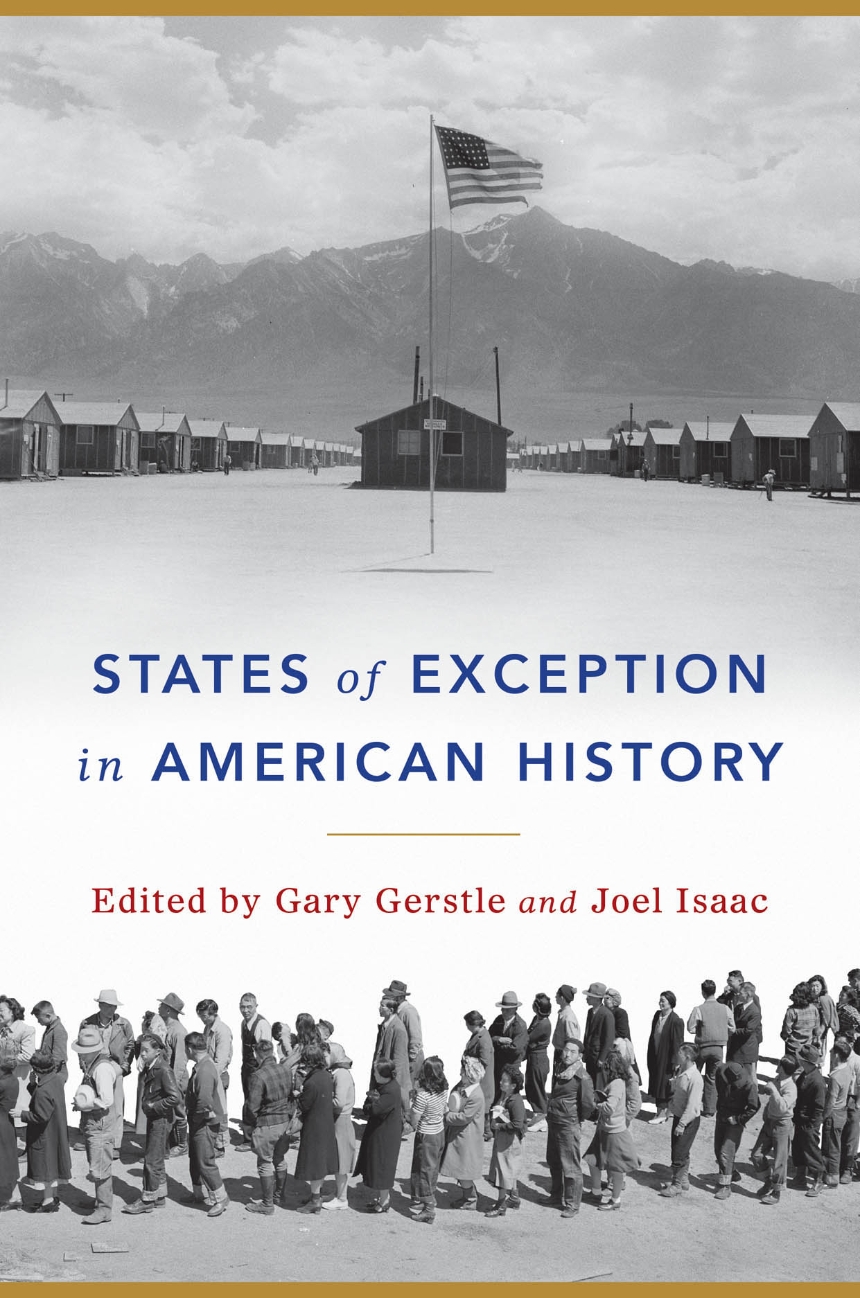States of Exception in American History
States of Exception in American History brings to light the remarkable number of instances since the Founding in which the protections of the Constitution have been overridden, held in abeyance, or deliberately weakened for certain members of the polity. In the United States, derogations from the rule of law seem to have been a feature of—not a bug in—the constitutional system.
The first comprehensive account of the politics of exceptions and emergencies in the history of the United States, this book weaves together historical studies of moments and spaces of exception with conceptual analyses of emergency, the state of exception, sovereignty, and dictatorship. The Civil War, the Great Depression, and the Cold War figure prominently in the essays; so do Francis Lieber, Frederick Douglass, John Dewey, Clinton Rossiter, and others who explored whether it was possible for the United States to survive states of emergency without losing its democratic way. States of Exception combines political theory and the history of political thought with histories of race and political institutions. It is both inspired by and illuminating of the American experience with constitutional rule in the age of terror and Trump.
The first comprehensive account of the politics of exceptions and emergencies in the history of the United States, this book weaves together historical studies of moments and spaces of exception with conceptual analyses of emergency, the state of exception, sovereignty, and dictatorship. The Civil War, the Great Depression, and the Cold War figure prominently in the essays; so do Francis Lieber, Frederick Douglass, John Dewey, Clinton Rossiter, and others who explored whether it was possible for the United States to survive states of emergency without losing its democratic way. States of Exception combines political theory and the history of political thought with histories of race and political institutions. It is both inspired by and illuminating of the American experience with constitutional rule in the age of terror and Trump.
344 pages | 1 line drawing | 6 x 9 | © 2020
History: American History
Law and Legal Studies: The Constitution and the Courts
Political Science: American Government and Politics
Reviews
Table of Contents
Acknowledgments
Introduction
Part One: The Challenge of Carl Schmitt
1 What Is the State of Exception?
2 Negotiating the Rule of Law: Dilemmas of Security and Liberty Revisited
3 Beyond the Exception
Part Two: The American Experience with Emergency Powers
4 The American Law of Overruling Necessity: The Exceptional Origins of State Police Power
5 To Save the Country: Reason and Necessity in Constitutional Emergencies
6 Powers of War in Times of Peace: Emergency Powers in the United States after the End of the Civil War
7 Was There an American Concept of Emergency Powers? John Dewey, Carl Schmitt, and the Democratic Politics of Exception
8 Charles Merriam and the Search for Democratic Power After Sovereignty
9 Constitutional Dictatorship in Twentieth-Century American Political Thought
Part Three: Broadening the Exception
10 Frederick Douglass and Constitutional Emergency: An Homage to the Political Creativity of Abolitionist Activism
11 Delegated Governance as a Structure of Exceptions
12 Spaces of Exception in American History
Afterword
Contributors
Index
Introduction
Gary Gerstle and Joel Isaac
Part One: The Challenge of Carl Schmitt
1 What Is the State of Exception?
Nomi Claire Lazar
2 Negotiating the Rule of Law: Dilemmas of Security and Liberty Revisited
Ewa Atanassow and Ira Katznelson
3 Beyond the Exception
David Dyzenhaus
Part Two: The American Experience with Emergency Powers
4 The American Law of Overruling Necessity: The Exceptional Origins of State Police Power
William J. Novak
5 To Save the Country: Reason and Necessity in Constitutional Emergencies
John Fabian Witt
6 Powers of War in Times of Peace: Emergency Powers in the United States after the End of the Civil War
Gregory P. Downs
7 Was There an American Concept of Emergency Powers? John Dewey, Carl Schmitt, and the Democratic Politics of Exception
Stephen W. Sawyer
8 Charles Merriam and the Search for Democratic Power After Sovereignty
James T. Sparrow
9 Constitutional Dictatorship in Twentieth-Century American Political Thought
Joel Isaac
Part Three: Broadening the Exception
10 Frederick Douglass and Constitutional Emergency: An Homage to the Political Creativity of Abolitionist Activism
Mariah Zeisberg
11 Delegated Governance as a Structure of Exceptions
Elisabeth S. Clemens
12 Spaces of Exception in American History
Gary Gerstle and Desmond King
Afterword
Gary Gerstle and Joel Isaac
Contributors
Index
